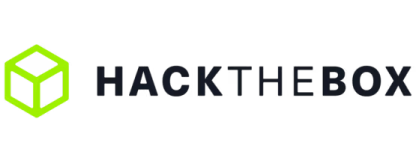DigitalOcean Kubernetes allows Hack The Box to scale
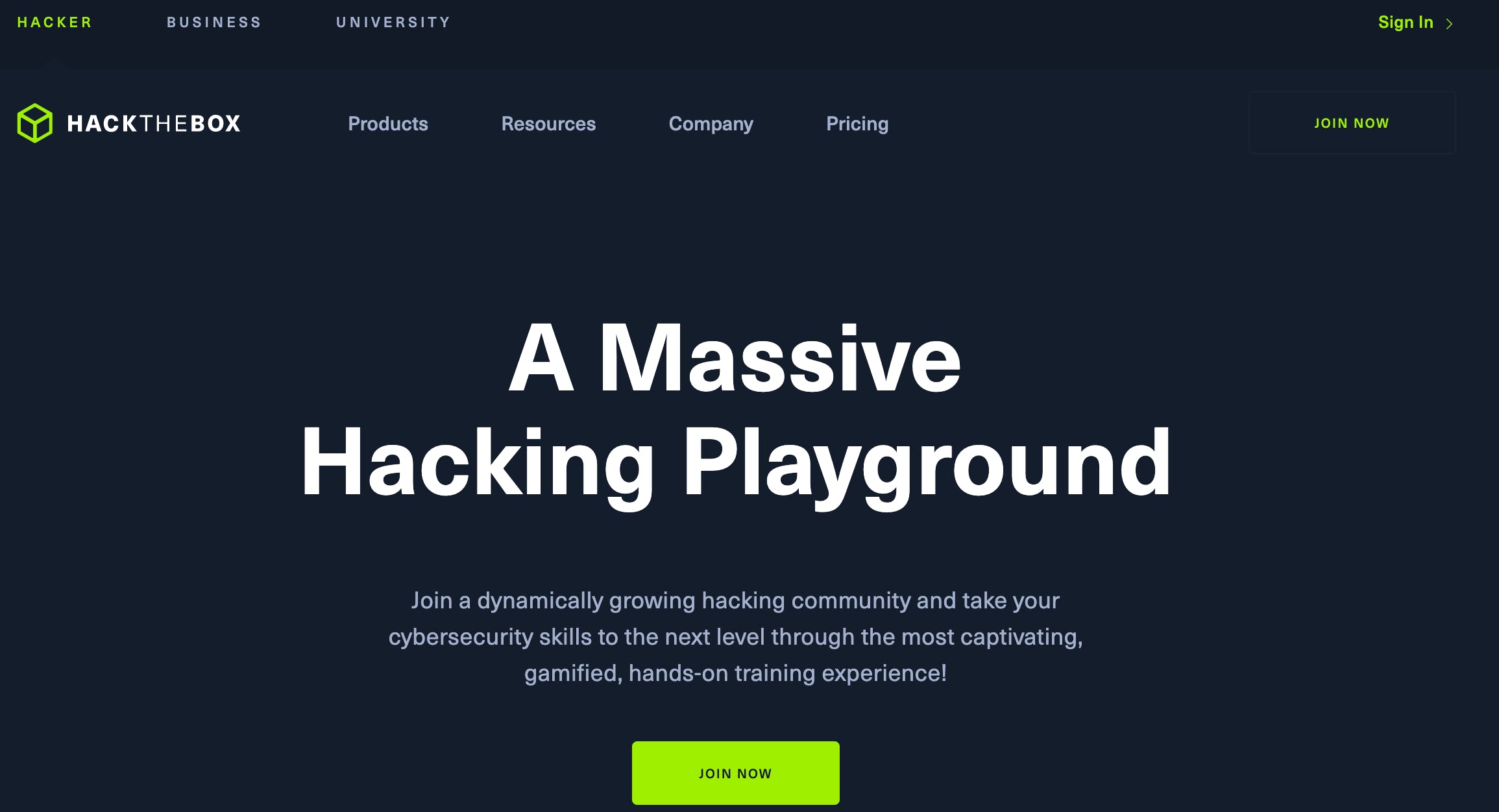
“The fact that it’s so easy to configure, administrate and scale with DigitalOcean is something which I love."
DigitalOcean Kubernetes allows Hack The Box to scale
Hack The Box offers advanced training for IT security professionals and hackers through gamified, hands-on experiences. Users learn hacking methodology, the penetration testing process, and how to research vulnerabilities by completing a series of challenges on the platform. Completely self-driven, users are rewarded with points and increased rankings for solving progressively complex scenarios that teach them invaluable skills.
Hack The Box has seen tremendous growth over the last four years. What began as a nimble, three-person team in 2017 has scaled to over 100 employees. With multiple rounds of funding and a user-base that’s grown to more than 750,000 platform members and more than 800 organizations, Hack The Box needed a partner that could scale easily and quickly while maintaining high performance. Driven by the need for simplicity and base performance, the Hack The Box team engaged DigitalOcean.
High-growth, high-performance partners
The preliminary platform ran on a hyperscale cloud provider, with a couple of virtual machines and a Relational Database. The division of infrastructure was two-fold–one side took care of the database tasks, and the second side took care of presenting the main Web Application. When James Hooker joined Hack The Box as CTO, he suggested exploring DigitalOcean for their infrastructure. Having been a long-time user of DigitalOcean, Hooker knew that the platform provided simplicity, VM performance, and community support that would benefit Hack The Box.
Hack The Box was interested in moving to DigitalOcean and ran benchmarking tests to ensure the performance would exceed their current setup. As Hack The Box began migrating, it became clear that the performance of Droplets in DigitalOcean was superior.
Now, Hack The Box takes full advantage of DigitalOcean’s product portfolio and runs around 95% of its infrastructure on DigitalOcean. The primary web server, backend database server, and task scheduler for Hack The Box as a platform, Capture the Flag, Academy and Enterprise Platform all operate on DigitalOcean Droplets. And the team uses dedicated CPU Droplets with “Parrot Linux” for penetration testing and lucrative attacking environments.
Simplicity and scalability With DigitalOcean Kubernetes
One popular offering of Hack The Box, known as Challenges, offers singular applications focusing on different hacking fields across diverse categories and scalable difficulties. When users solve challenges, they are rewarded with points. As Hack The Box continued to grow, the Challenge platform began hitting some performance bottlenecks. Initially created in a Docker environment, they transitioned to Docker Swarm. Even then, they had limitations in performance. So the Hack The Box Team transitioned to Kubernetes, completely replacing the Docker and Docker Swarm environments with DigitalOcean’s Managed Kubernetes offering using an architecture that looks like this:
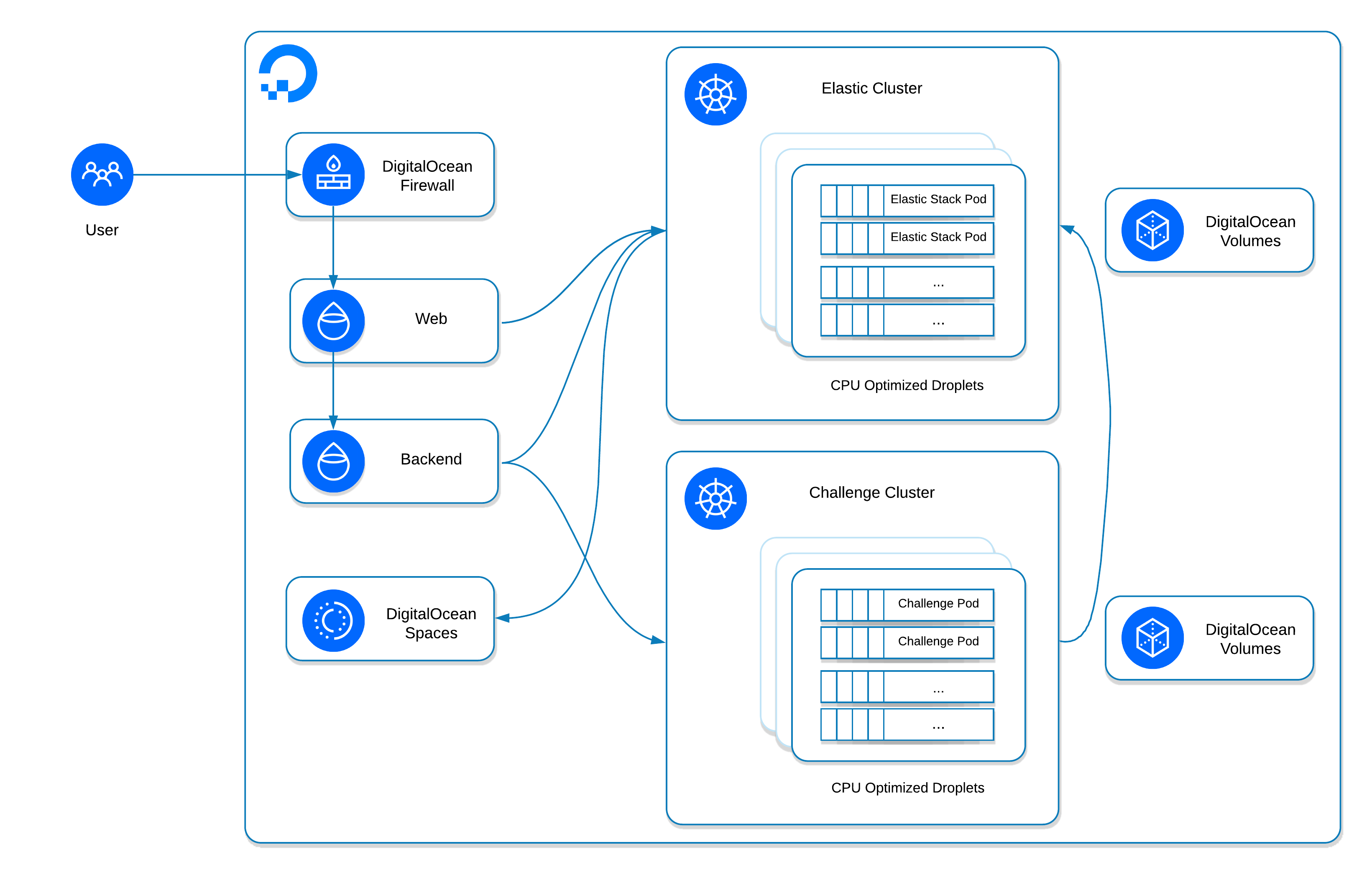 ,Hack The Box Challenge environments need to work quickly and also provide strict network policies for users, enabling them to access parts of the machine required to complete challenges but preventing access to outside networks. With DigitalOcean’s managed Kubernetes, the team can use Kubernetes to handle the application and required network policies while scaling to meet traffic needs.
,Hack The Box Challenge environments need to work quickly and also provide strict network policies for users, enabling them to access parts of the machine required to complete challenges but preventing access to outside networks. With DigitalOcean’s managed Kubernetes, the team can use Kubernetes to handle the application and required network policies while scaling to meet traffic needs.
“The fact that it’s so easy to configure, administrate and scale with DigitalOcean is something which I love. I’ve worked with Kubernetes before, hands-on, self-hosted, but the DigitalOcean integration and provision of Kubernetes has been the most seamless that I’ve experienced so far. “
- James Hooker, CTO, Hack The Box
Utilizing Kubernetes has enabled the Hack The Box team to tremendously scale Capture The Flag, a platform that allows users to compete in challenges with other members. Recently, Hack The Box hosted Cyber Apocalypse, their first-ever global community Capture The Flag event. That event saw 9,900 players sign up, compared to their typical few hundred users. Even with thousands of users and 61 challenges to choose from, DigitalOcean Kubernetes seamlessly scaled up backend clusters and supported containers needed to host the event.
The future is DigitalOcean Kubernetes
The Hack The Box team is now transitioning their remaining systems to DigitalOcean Kubernetes. They’ve hit some performance bottlenecks within the application that they’ve overcome so far, but they’re still growing at a tremendous rate. Using DigitalOcean Kubernetes across their systems will allow them to host and scale while saving management time for the team.
“I see the value in Kubernetes and am inclined to use it going forward for production environments. We believe in this tech and believe that it enables us to scale as far as we can. And from what I have seen with DigitalOcean and the services you provide, it’s really just about how far we can go. You have all the capabilities we need.“
- James Hooker, CTO, Hack The Box
Featured Stories
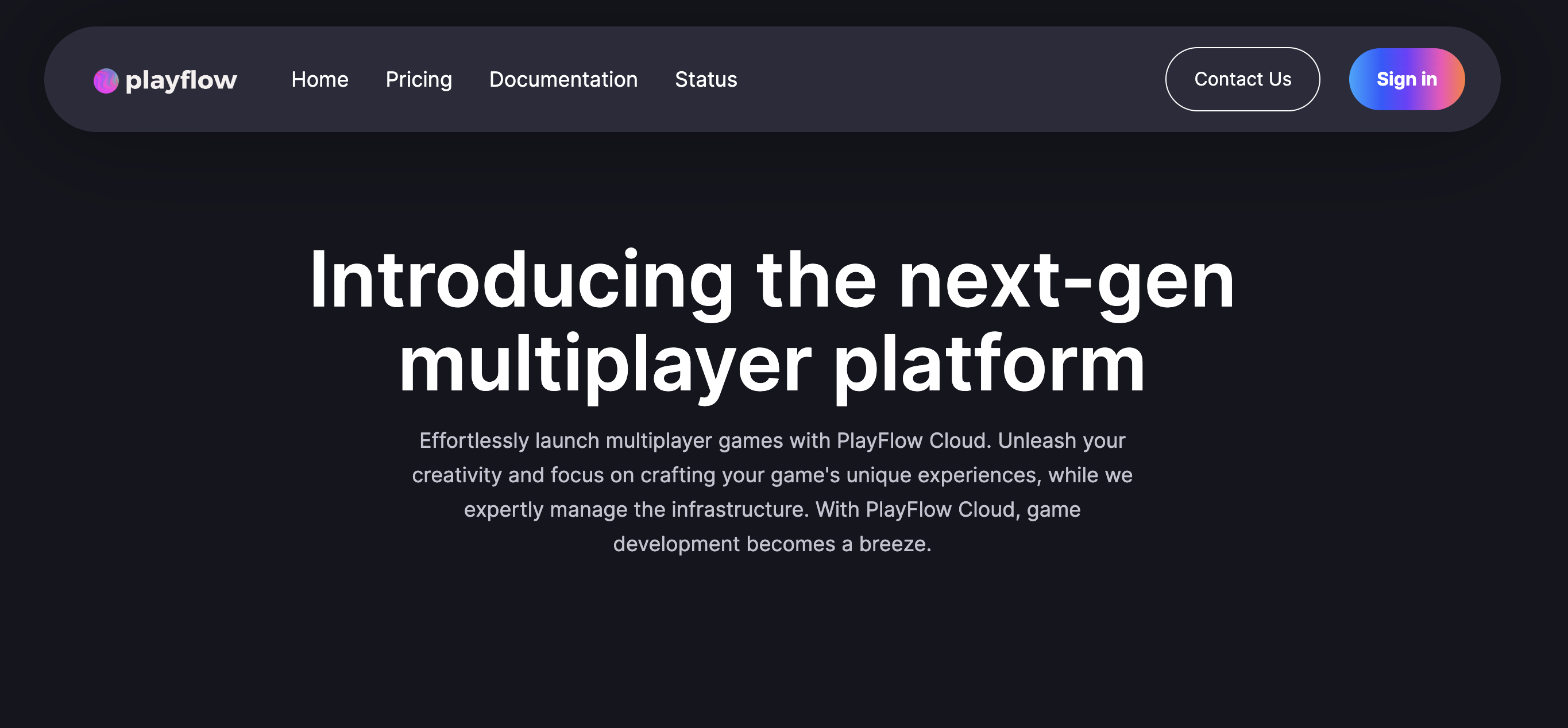
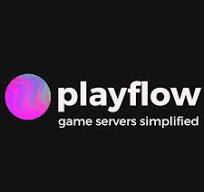
PlayFlow Cloud is revolutionizing the game development industry by simplifying the setup and management of game servers. PlayFlow Cloud leverages multiple DigitalOcean products, including DigitalOcean Kubernetes, as the backbone of their scalable cloud infrastructure, and credits DigitalOcean’s ease of use and affordability with helping their business grow.
Learn More ->
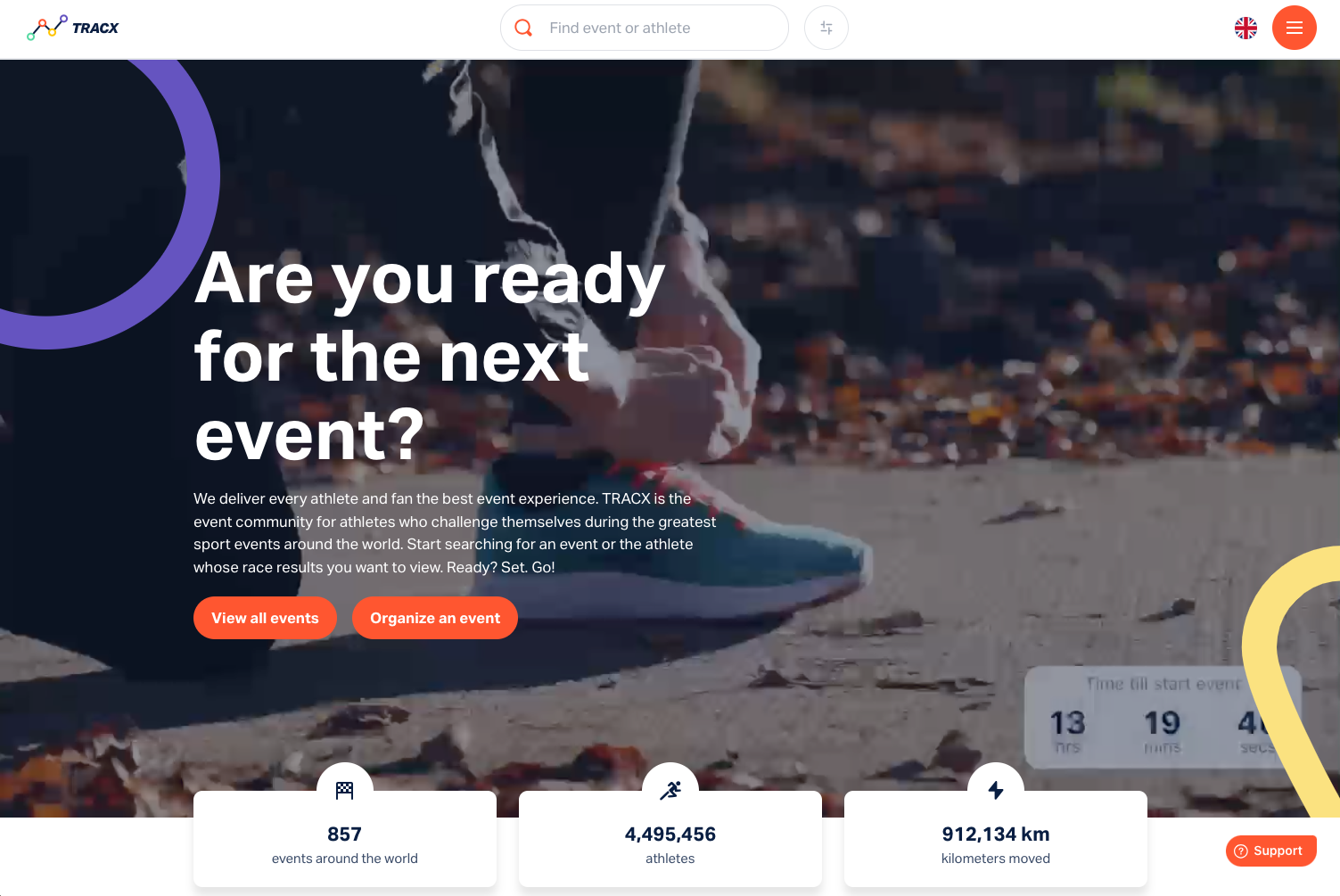

Sportunity is one of the world’s biggest sports tracking applications, and as they have grown to serve thousands of users per minute, they have leveraged DigitalOcean to improve their application’s performance and deliver exceptional experiences to the athletes and spectators who use their technology.
Learn More ->
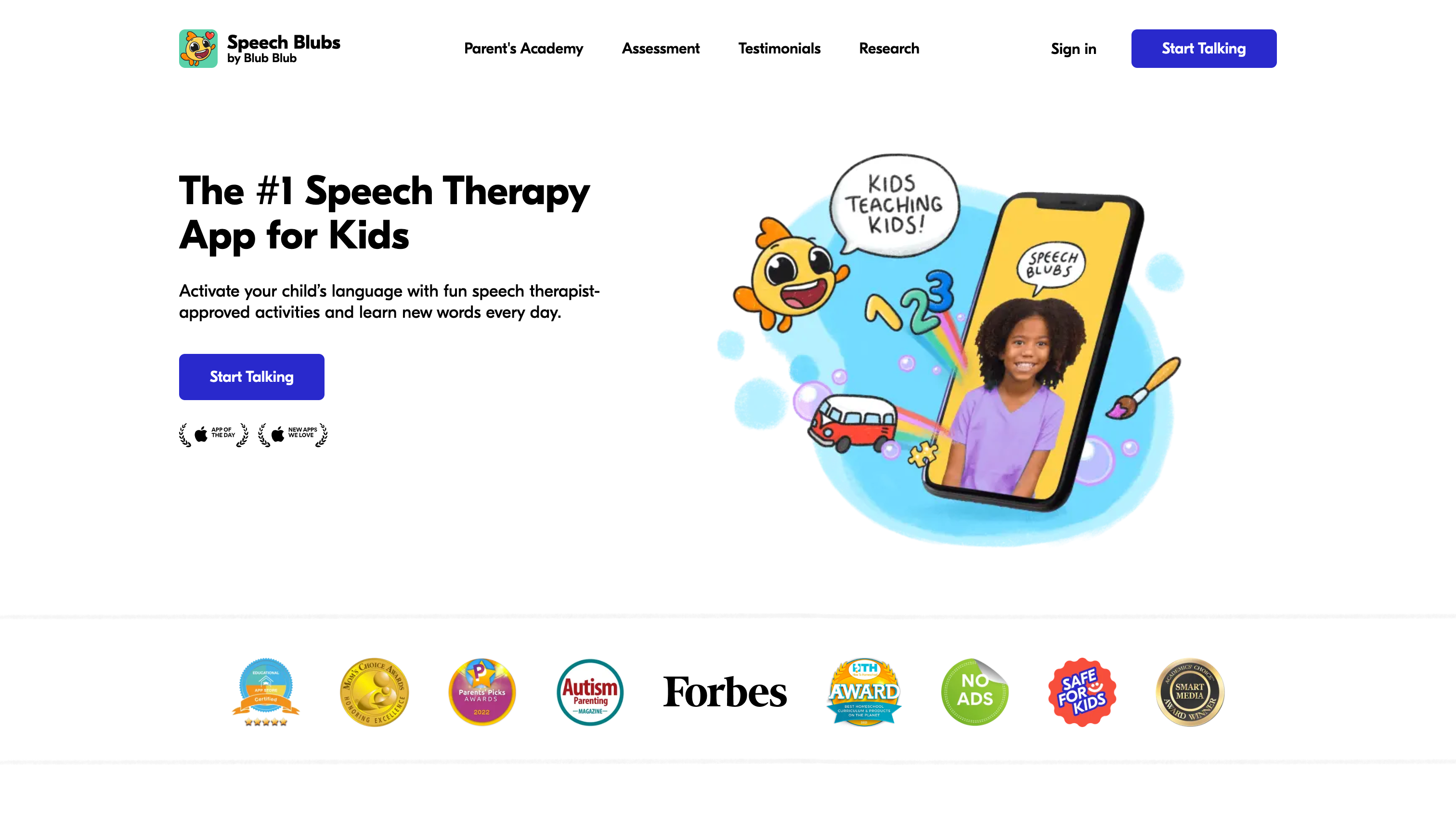

Blub Blub's Speech Blubs, a popular interactive speech therapy app for children, scaled up its service and streamlined cloud management by transitioning to the DigitalOcean App Platform, benefiting from cost-efficiency and dedicated support.
Learn More ->
Start building today
Sign up now and you'll be up and running on DigitalOcean in just minutes.
